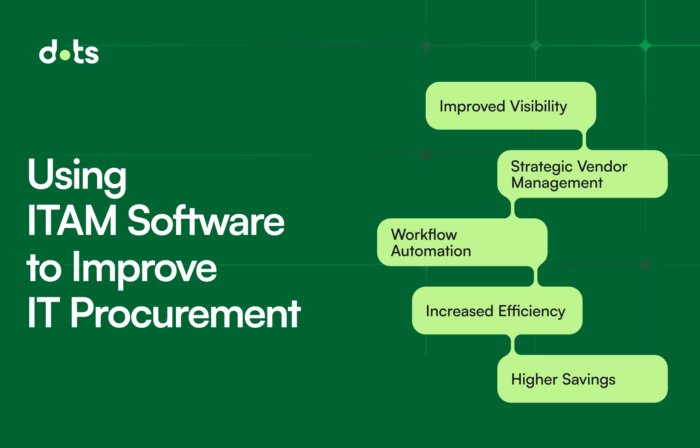Apple’s M4 processor, announced in May 2024 and available from today on MacBook Pro, Mac Mini and iMac, is a significant advancement in Apple’s custom silicon lineup. John Ternus, Apple’s senior vice president of Hardware Engineering, claims that “With the powerful M4 family of chips, and packed with pro features like Thunderbolt 5, an advanced 12MP Center Stage camera, an all-new nano-texture display option, and Apple Intelligence, the new MacBook Pro continues to be, by far, the world’s best pro laptop.” Together, let’s get stuck into what that actually means and whether experts agree:
The Geek Bit
Too geeky? Skip to the non-techie stuff.
Built on a second-generation 3-nanometer process, the M4 offers substantial improvements over its predecessors. Let’s take a look at what was announced in May:
In Short:
CPU Architecture:
- Up to 10-core CPU*
- Improved branch prediction
- Wider decode and execution engines for performance cores
- Deeper execution engine for efficiency cores
*10-core GPU:
- 10-core GPU
- 4 high-performance cores
- 6 energy-efficient cores
- Supports Dynamic Caching
- 2x faster ray tracing acceleration
- Hardware-accelerated mesh shading
- Improved scheduler

Neural Engine:
- 16-core Neural Engine
- Capable of up to 38 trillion operations per second
The M4’s 16-core Neural Engine [achieves] a 111% increase from M3’s 18 trillion operations per second.
Memory and Bandwidth
According to MacRumors’ post last week, the M4:
- supports LPDDR5X unified memory;
- boasts 120GB/sec memory bandwidth;
- is available in configurations up to 32GB.
Performance Enhancements
Apple claims significant performance improvements with the M4 chip. Check out a couple of Apple’s comparisons:
- Up to 1.5x faster CPU performance compared to M2
- Up to 4x faster GPU performance in pro rendering applications like Octane
- Neural Engine is 60x faster than the first Neural Engine in A11 Bionic
- Can deliver the same performance as M2 using half the power
- Compared to the latest PC chip in a thin and light laptop, M4 can deliver equivalent performance using just a quarter of the power
AI and Machine Learning Capabilities
Back to May’s announcement, we can see that the M4 chip boasts significant enhancements in AI and machine learning performance:
- Enhanced ML accelerators: The M4 includes “next-generation machine learning (ML) accelerators in the CPU” and a “high-performance GPU” that work together to boost AI performance.
- Faster Neural Engine: The M4 has “Apple’s fastest Neural Engine ever, capable of up to 38 trillion operations per second,” which is a substantial improvement over previous generations.
- On-device AI features: The M4 supports AI features in iPadOS such as “Live Captions for real-time audio captions, and Visual Look Up, which identifies objects in video and photos”.
M4 Pro and M4 Max

Apple also revealed the M4 Pro and M4 Max chips in late October 2024. The M4 Pro comes with a 14-core CPU and a 20-core GPU: “M4 Pro and M4 Max enable Thunderbolt 5 for the Mac for the first time, and unified memory bandwidth is greatly increased — up to 75 percent” (Apple introduces M4 Pro and M4 Pro Max). The M4 Max, designed for high-end users, features up to a 16-core CPU “that’s up to 2.2x faster than the CPU in M1 Max, and up to 2.5x faster than the latest AI PC chip” (May’s announcement).
M4: Direct Comparison with the M3
CPU Performance
The M4 shows significant improvements over the M3 in CPU performance. (Comparisons courtesy of MacRumors.)
- Single-core performance is approximately 25.1% faster in Geekbench v6 benchmarks (3,864 vs 3,009 points)
- Multi-core performance shows a 30.5% improvement (15,288 vs 11,711 points)
- The M4 features up to 10 CPU cores (4 performance + 6 efficiency) compared to M3’s 8 cores (4 performance + 4 efficiency)
- M4’s CPU clock speed reaches 4.3 GHz, higher than M3’s 4.05 GHz
GPU Performance
The M4’s GPU also offers notable enhancements:
- Metal GPU benchmark scores indicate a 21.4% improvement (57,603 vs 47,466 points)
- The M4 GPU maintains performance with significantly less power consumption compared to the M3
Neural Engine and AI Capabilities
One of the most substantial upgrades is in the Neural Engine:
- The M4’s 16-core Neural Engine can perform up to 38 trillion operations per second, a 111% increase from M3’s 18 trillion operations per second
- This significant boost enhances AI and machine learning capabilities
Memory and Bandwidth
The M4 brings improvements in memory technology and bandwidth:
- Supports LPDDR5X memory, an upgrade from M3’s LPDDR5
- Memory bandwidth increased by 20%, from 100 GB/s to 120 GB/s
Architecture and Efficiency
The M4 is built on an enhanced version of TSMC’s 3nm technology:
- Contains 28 billion transistors, 12% more than M3’s 25 billion
- Utilizes ARMv9.2-A architecture, an upgrade from M3’s ARMv8 (NanoReview)
What This Means to Non-Techies
What a Few of the Big YouTubers Have to Say:
We’ve taken a look at what some of the biggest geeks have had to say about it, and here are the key points to keep in mind, depending on the use you’re going to make of it:
In Favour:
- GregsGadgets: “You get a reasonably priced laptop that has a more powerful CPU than the Mac Pro. That is an insane value that is such an easy recommendation to make.”
- Just Josh: “The M4 processor gets 120 GB per second up from 100… Those with M4 Max chips get 410 or 546 depending on what you buy. This makes it competitive with the current batch of Windows laptops.”
- Matt Talks Tech: “If you are doing 8K video editing, then the M4 Max is the right one for you… the M4 Pro definitely provides a performance upgrade over the M1 Pro.”
Against:
- GregsGadgets: “If you don’t utilize your Mac for really GPU-intensive tasks like 3D modeling, rendering, or gaming, then this [M4 Max] upgrade is completely worthless to you.”
- Just Josh: “No Wi-Fi 7, only Wi-Fi 6E… there’s no excuse here. Our guess is that Apple has done this so they will have a reason to convince you to upgrade to the M5 models
- Matt Talks Tech: “I would not be upgrading… If you own an M2 or M3 MacBook Pro, you are unlikely to notice much of a difference.”
The Bottom Line
We’ve seen that these improvements look significant on paper, but the real-world impact for users upgrading from M3 may be less dramatic:
- Everyday tasks may not feel radically different for most users
- The improvements are more noticeable for users upgrading from M1 chips or older Intel systems
- The M4’s enhanced Neural Engine makes it better equipped to support future AI features and Apple Intelligence capabilities
- The M4’s efficiency will deliver similar or better battery life compared to previous models and the M4 MacBook Pro “promises 24 hours of battery life.” (techradar).
Availability and Pricing
The M4 is expected to be in high demand upon release this Thursday, which looks likely to lead to a shortage. This is likely to make M3 devices more attractive, as prices may drop with the M4’s introduction.
Where can I get the new M4 / M3 processors?
If you’re planning your 2025 IT equipment budget and you wish to add Apple’s newest processors to your team, the new Macbooks are now available to order from Dots’ catalog. Has the geek stuff pushed you in the direction of the M4? Or do you prefer to take advantage of the M3’s potential price drop? In either case, Dots’ efficient IT procurement makes it easier to get your hands on Apple’s latest tech. Book a demo to get our complete procurement and ITAM solutions today.





